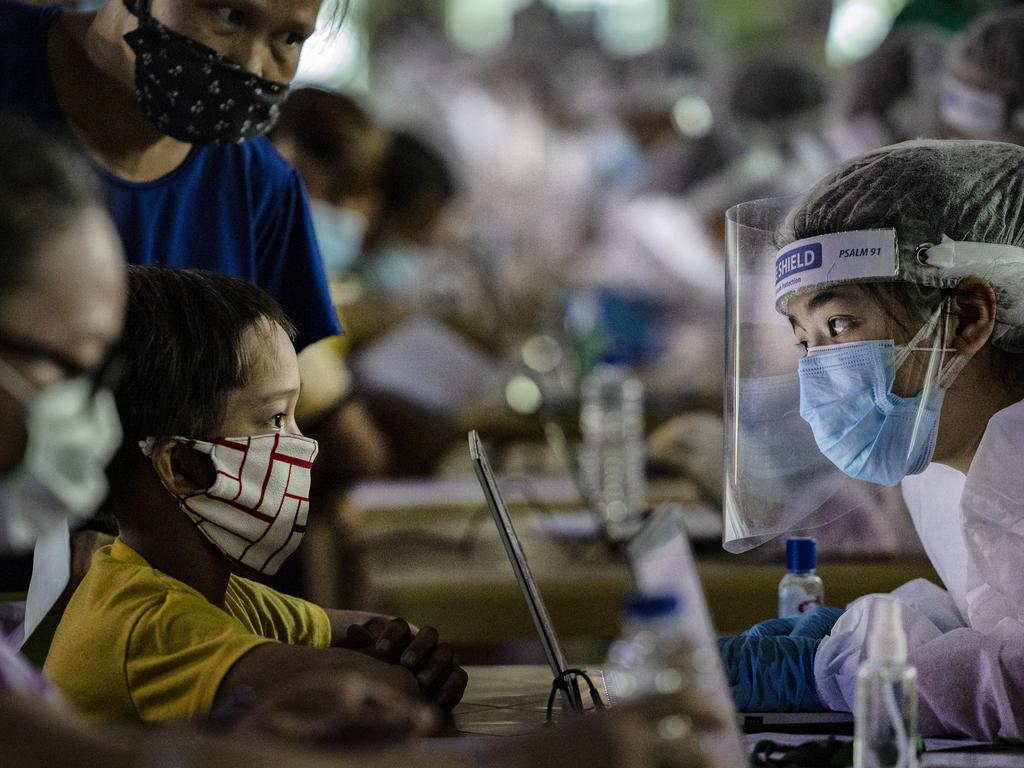Jakarta markets hit wall in ‘new normal’ of coronavirus crisis
The ‘new normal’ in Jakarta is millions of unemployed, Covid clusters in office blocks and a growing number of daily infections.

The smog is back in Jakarta, the brief period of blue-sky days apparently as fleeting as the partial lockdown imposed by the central government to control the spread of the coronavirus now accelerating across the archipelago.
The traffic on my return to the Indonesian capital last week seemed as dense as ever, forcing the reintroduction of the odds and even number plate scheme that has — in turn — increased volumes on public transport.
The “new normal” in Jakarta — a term the government introduced to encourage a cautious reopening of the economy but which it now concedes fostered a false sense of public security — is millions of unemployed workers, COVID-19 clusters across the city’s office blocks and a growing number of daily infections.
The city added 686 new cases on Saturday, almost a third of new infections across the country that day even as millions have returned to work.
With daily testing averaging around 14,000 people for a national population of 270 million, epidemiologists say the country’s official caseload of 125,000 infections is a gross underestimate by many multiples.
Still, there is popular support for the government’s decision to kick-start an economy that suffered a 5.32 per cent drop in the second quarter, sending the country’s balance sheet into decline for the first time in 21 years last week. Two out of three Indonesians surveyed last month opposed any further COVID-19 restrictions. A survey on the weekend showed 71 per cent felt the country was well-prepared to reopen to international tourism. Bali intends to do so on September 11.
With hospitals again filling up with COVID-19 patients and epidemiologists warning Indonesia’s infection peak could be months away, such optimism would be baffling to most Australians. But drill down to neighbourhood level and it’s easier to understand why Indonesians are keen to get back to work.
The fresh coconut seller has disappeared from my street in Menteng, which hosts both an Indonesian Central Bank director and the entrance to a Kampung where thousands of working class Indonesians live in narrow alleys with open drains. So too has the man who sold fried snacks from a rented cart opposite one of central Jakarta’s few neighbourhood playgrounds. Neither one could afford their carts any longer as their families — back in Javanese villages — faced eviction and begged them to send money.
Bude, the old lady who sold drinks and snacks to the kids that monopolised the basketball court, has survived by selling gas cylinders and spring water.
She feels lucky, she insists. “Many people around me are stressed and desperate. My friend who had a soto (traditional soup) stall had to leave because she ended up throwing away food. There were no buyers and she couldn’t afford to pay rent.”
At the rice stall next door, Iyan and his wife Suparti say they have been surviving on a quarter of their usual income for months and have kept afloat only with help from their son, who held onto his job as millions have lost theirs.
Indonesia’s National Planning and Development Agency estimates 13 million may be unemployed by year’s end, though that doesn’t begin to reflect the magnitude of suffering given more than 60 per cent of working Indonesians are employed in the informal sector.
Pak Iyan knows only three people in his Kampung who received food aid from the government. None of the vendors in the street had seen any of the government’s 695 trillion rupiah ($66bn) economic stimulus package, a chunk of which was intended to prop up just such microbusinesses.
It is only in the last few weeks that things have begun to look up, says Iyan who insists he will stay open no matter how steep the daily rise in infection rates.
“Whatever the situation, people will still buy food. And we are such healthy people,” he adds, his face mask dangling around his neck.
“There is no reason for us to close, especially since things are looking better.”







To join the conversation, please log in. Don't have an account? Register
Join the conversation, you are commenting as Logout